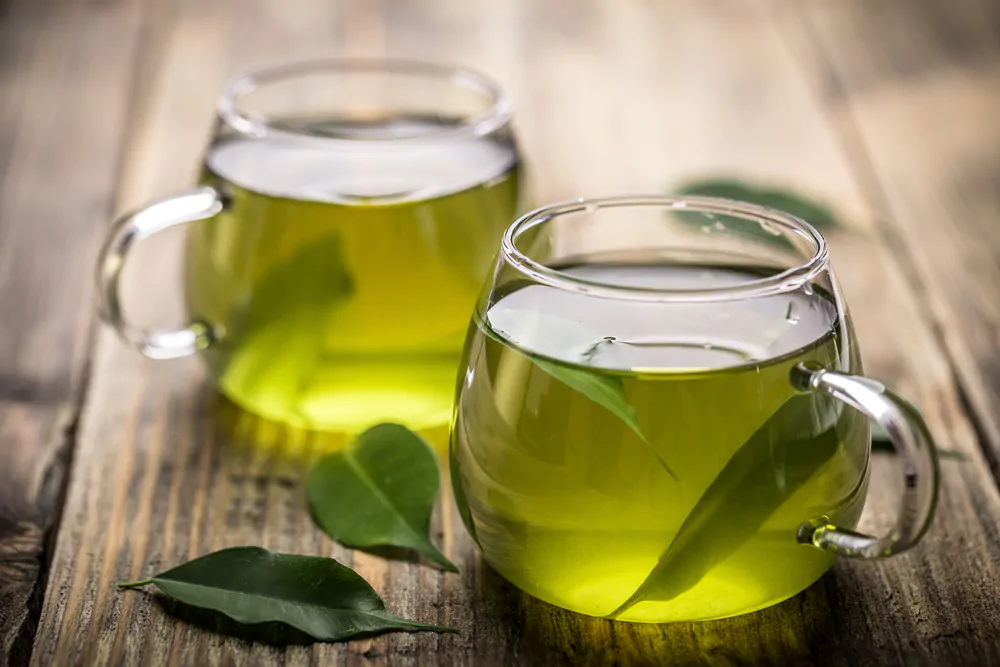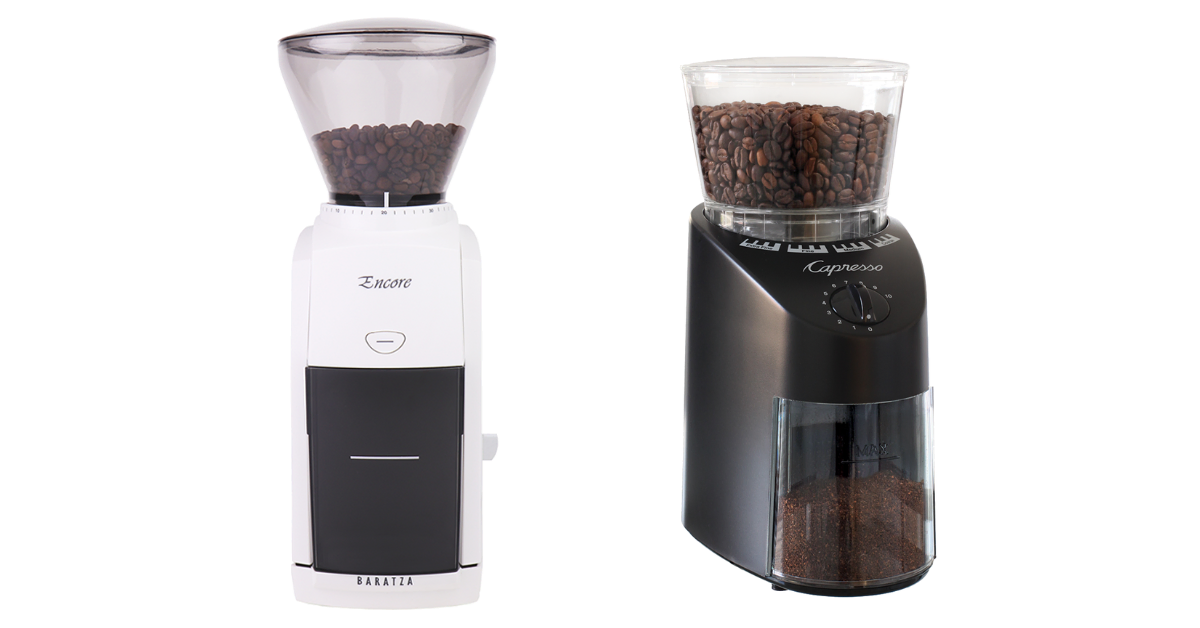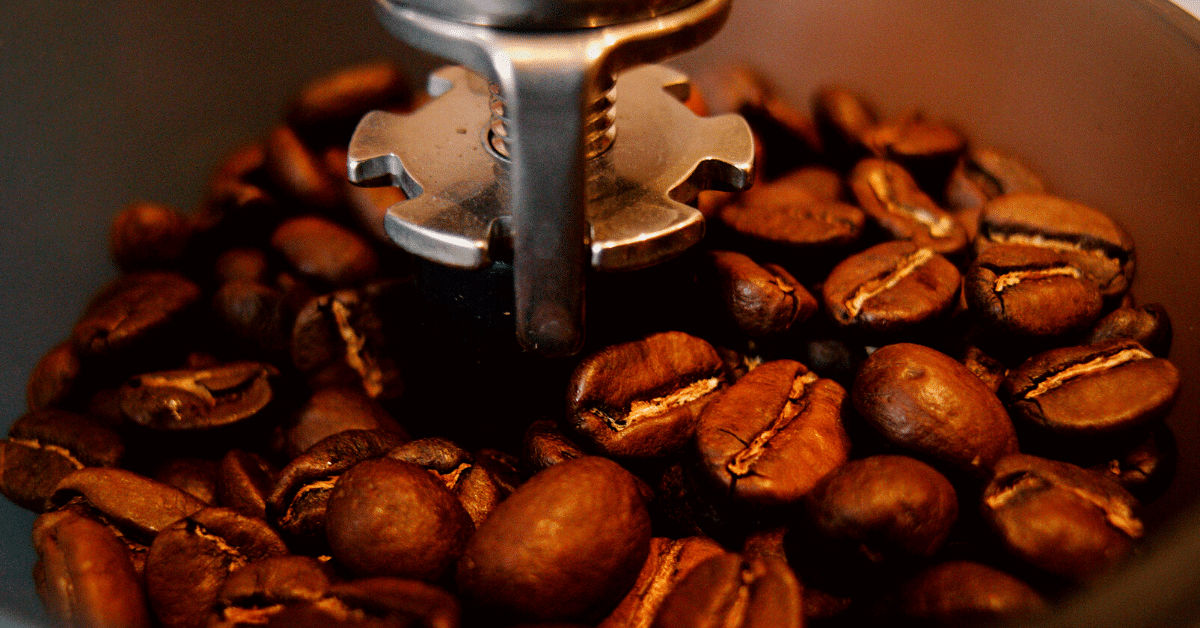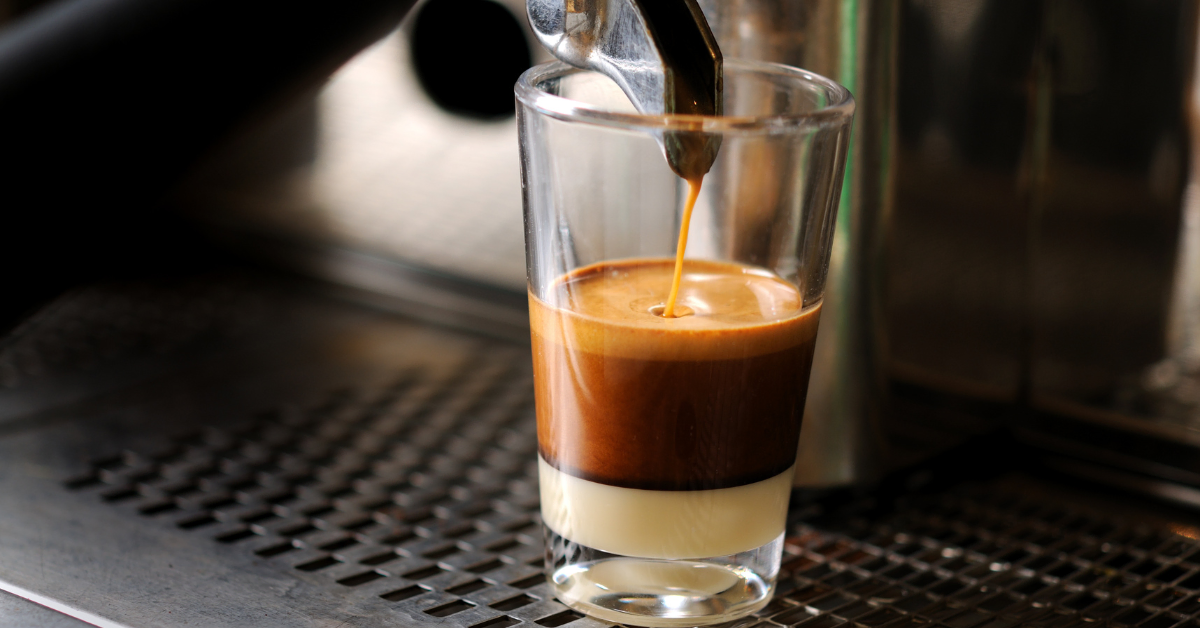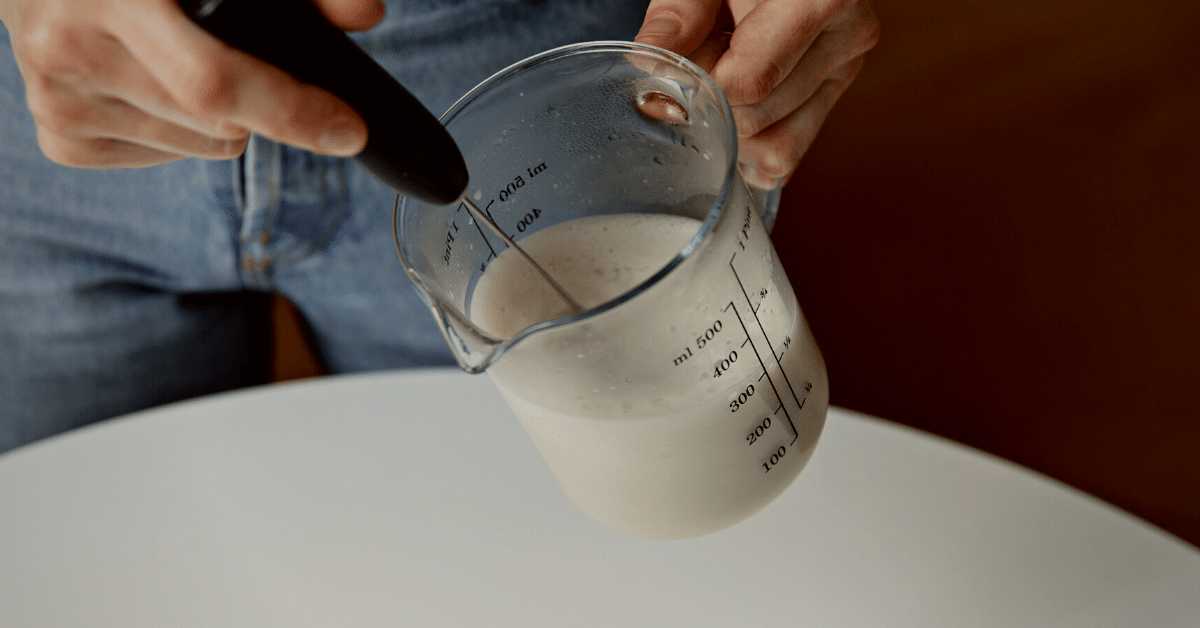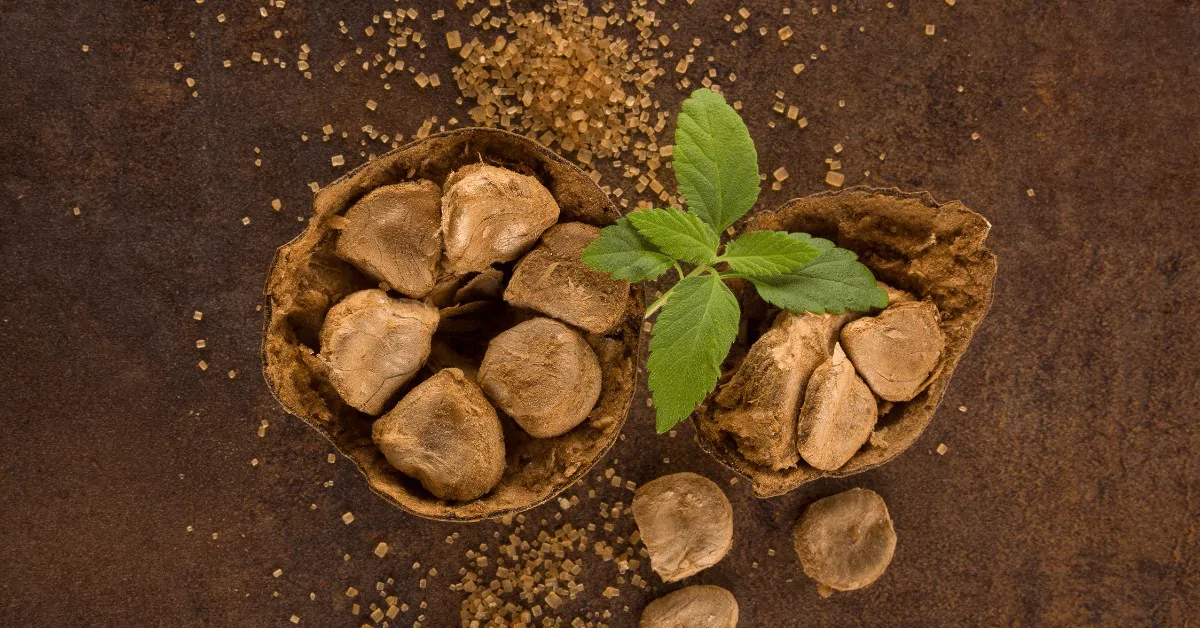What is epigallocatechin gallate? This compound, often found in green teas, aids in alleviating some of your body’s ailments. Read on to find out everything you have to know about it.
Perhaps you want to shed a few pounds, reduce inflammation, or maintain good health.
If any of the above is the case, epigallocatechin-3-gallate might be able to help. Also referred to as EGCG, it is a dual phosphoinositide-3 kinase inhibitor considered by many to be one of the strongest antioxidants available.
The best part is that you can take advantage of its health benefits with a hot cup of flavorful green tea and coffee! Here is our guide to the different types of coffee beans and drinks you can try to make your EGCG intake more flavorful.
Keep reading to learn more about this valuable natural compound and its many positive effects on your health! You might also be wondering, is coffee good for fat loss?
What Is EGCG?
Epigallocatechin-3-gallate and epicatechin gallate or ECG are among the more prominent green tea catechins and flavonoids. In a nutshell, catechins are a secondary metabolite found in various plants that give their anti-inflammatory qualities. Flavonoids are other plant compounds with anticancer and antioxidant properties that benefit your well-being.
The bioactive compound, which has a CAS number of 989-51-5, is a part of many natural foods and drinks (which we’ll get to in a bit). EGCG, though, is perhaps most known as one of the main organic compounds and polyphenols found in green tea. In fact, its health benefits are the main reason many people value green tea and its chemical compounds in the first place.
The Health Benefits Of EGCG

As mentioned earlier, drinking green tea and consuming other drinks or foods containing epicatechin-3 and antioxidant properties has various health and pharmacol benefits. These include everything from helping with ailments like arthritis to potentially helping prevent more serious cases like cancer. You might also be wondering, what is Ganoderma coffee?
EGCG Has Anti-Inflammatory Properties
Green tea is often referred to as one of the world’s best natural anti-inflammatories due to EGCG. Consuming it can provide a handful of benefits to individuals suffering from rheumatoid arthritis and inflammatory bowel disease.
So, if your joints are aching or feeling swollen, perhaps including a routine green cuppa in your diet might benefit you!
Aids In Weight Loss
Green tea and EGCG can also help individuals lose weight when taken regularly! Studies on green tea extracts and pharmacology have suggested that sustained consumption can lead to noticeable weight loss and a smaller waist. Other studies have also shown that EGCG can also help people burn fat. Some studies, however, have also suggested that green tea extracts and EGCG have lower levels of bioavailability in individuals who suffer from obesity.
Of course, it’s very important to remember that you must combine EGCG intake with a regular diet and exercise to lose weight effectively. After all, there’s no point in drinking green tea to stay healthy if you eat junk food for the rest of the day.
It’s Good For Your Heart
Are you worried about suffering from a heart ailment? Numerous studies have shown that green tea and EGCG catechins can help fight cardiovascular disease. This is because green tea polyphenol is also known to help lower blood pressure.
Another potential cardiovascular benefit people may experience from drinking green tea or EGCG is lower bad cholesterol. Some experts have even suggested modifying EGCG molecules to create new drugs for treating heart attacks and strokes.
So yes, taking EGCG can have positive cardiovascular benefits, among other effects on your biophysical or biological activity. In fact, this is one of the main positive benefits of EGCG intake and notable effects of green tea.
EGCG And Its Anticancer Properties
The compound might also help fight or prevent more serious sicknesses. Studies on EGCG pharmacology and catechins have also revealed its potential as an anticancer compound.
Clinical trials involving its use as part of cancer chemoprevention and cancer therapy have already been conducted for cervical and breast cancer. Some EGCG and green tea studies were conducted by scientists such as Di Chen of Wayne State University, Ying-Qi Wang of Zhejiang University in Hangzhou, China, and Chang Kyu Lee of Korea University College.
Some tests showed potential for the reduction of cancer cell growth, a delayed cancer cell cycle, and the inhibition of tumor cell lines.
In several studies revolving around prostate cancer, EGCG helped promote apoptosis or the elimination of unwanted cells by modulating signaling pathways, which promotes cell growth and survivability. It can also potentially target biochem and genetics unique to cancer, helping cancer cell death and reducing proliferation.
Role Of EGCG In Maintaining Brain Function
Theoretically, green tea extract and EGCG may positively affect a person’s brain function and cognitive ability. While no definitive study has shown it can prevent cognitive decline like dementia, research has been conducted to see the compound’s usefulness to the aging mind.
At the very least, studies surrounding EGCG are worth keeping an eye on if you’re hoping to keep your mind sharp as you age!
Supplementary Benefits Of EGCG
As a potent antioxidant, EGCG can also help the body fight the effects of free radicals. Free radicals are molecules that can cause various diseases in the human body. These are categorized as reactive oxygen species or ROS, which antioxidants help protect your cells from.
Some studies and citations have also shown that EGCG can affect the body’s regulation of proteins and lipids and affect fatty acid (FA) synthesis. Lipophilized EGCG derivatives have also shown more antioxidant potential in some studies.
Green tea can also be used to treat some diseases caused by oxidative stress, and as mentioned earlier, EGCG is also used in dual phosphoinositide-3-kinase inhibition. Some conclusions also showed that EGCG can help reduce the impact of liver damage caused by ethanol.
The compound has even been part of studies to determine its effects on toxins like ricin in vitro and modulation of vascular endothelial growth factor inhibition.
Are you a tea enthusiast? Please read our article about verbena tea properties and its health benefits.
EGCG In Other Food And Drinks
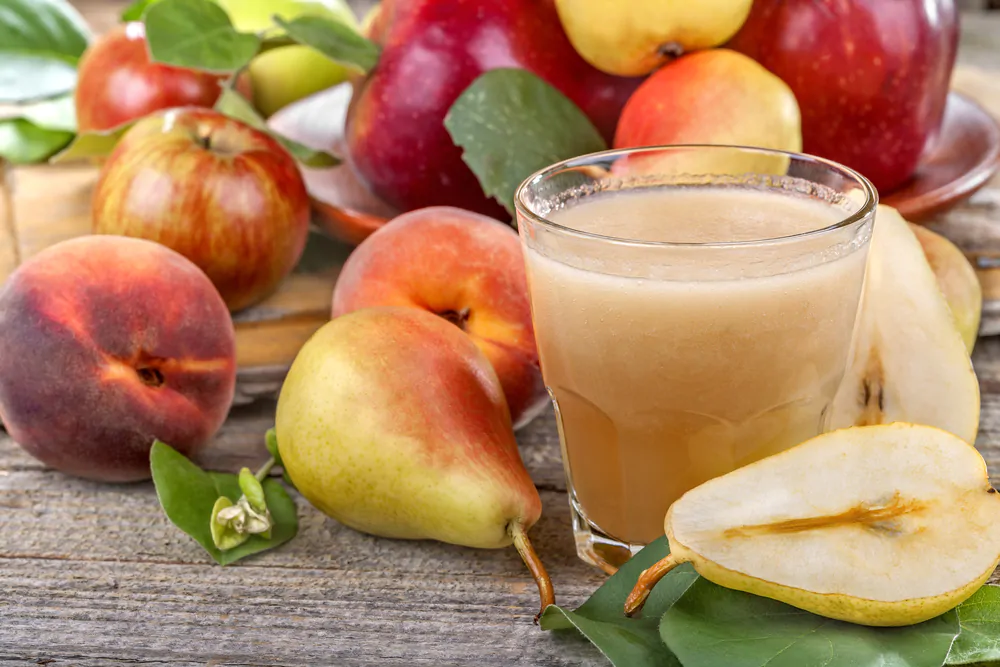
The good news is that you don’t necessarily need to take green tea if you want your daily dose of EGCG.
The compounds can also be found in a handful of fruits. These include cherries, strawberries, blackberries, pears, peaches, and apples. If you aren’t too keen on eating these fruits whole, you can turn them into a smoothie!
If you like nuts, you’ll be pleased to know pecans, pistachios, and hazelnuts contain the compound, too. Get to scavenging, everyone!
As far as drinks are concerned, you can get EGCG from other teas besides green tea. These include oolong tea and black tea. However, the amount of compound contained in these types of teas is not as high as green tea.
White tea, on the other hand, has high amounts of EGCG, with numbers similar to green tea. This is because it undergoes a shorter time being processed. So, yes, you have a lot of sources to choose from!
You might want to check out our delicious coffee pairing ideas that also go well with tea. Make sure to pick those with fruits and or nuts to get that extra EGCG dose!
Consider EGCG Supplements
If you’re looking for a quick and convenient way to boost your EGCG intake, you may want to consider taking EGCG supplements and natural products. You can easily buy these online, but double-check the authenticity of products, supplements, and enzymes you buy and keep track of your intake.
A quick disclaimer is to be very careful if you plan to go this route. EGCG supplements can have side effects if taken in great amounts. High dosages of these supplements can cause toxicity and lead to symptoms like dizziness and even liver or kidney failure. I recommend checking with your doctor first on how to manage your intake.
How To Prepare Green Tea

So, now we know all about green tea and EGCG’s positive effects on the human body. Now, we can get to making a nice hot cuppa!
Using A Tea Bag
The most convenient method is to use branded pre-made green tea bags. Place the tea bag inside a mug or container and pour hot water. From there, let your drink steep for a few minutes and get to drinking!
Making Green Tea With Powder
Another popular way of making green tea is using it in powder form. Since tea powder is much more concentrated than other forms, you only need to put a small amount into your hot water. Then, mix it and drink—unless you want to get fancy and make yourself a matcha latte, of course!
All you need is a tablespoon of matcha powder, half a cup of milk, a quarter cup of water, and a teaspoon of sugar or honey. You can add or reduce the milk and water depending on your preference. A piece of advice is to sift the matcha powder first to avoid clumping and a smoother drinking experience.
Using Green Tea Leaves
If you have a stash of dried green tea leaves, you’ll need a container like a pot and either a strainer or infuser. Place the leaves inside the infuser or mix it with your hot water. From there, your infuser or strainer will separate your drink from your leftover leaves as you pour. This is also sometimes referred to as the loose-leaf tea brewing method. Enjoy your drink!
Popular Green Tea Brands
There are a handful of mainstream tea brands that sell green tea. You have various strengths and formulas, so choose what you prefer the most.
Check out some of our top recommendations:
- Lipton Green Tea Bags
- Twinings Green Gunpowder Loose Tea Tins
- Yogi Tea – Green Tea Super Antioxidant
- Celestial Seasonings Green Tea
- Bigelow Tea Classic Green Tea
Alternatively, you can purchase your drink from a coffee shop if you would rather not brew it on your own. Green tea is available in almost all coffee shops or cafes, including Starbucks. Try their Honey Citrus Mint Green Tea, or check our list of cheap Starbucks drinks if you want something different.
A Short History Of Green Tea
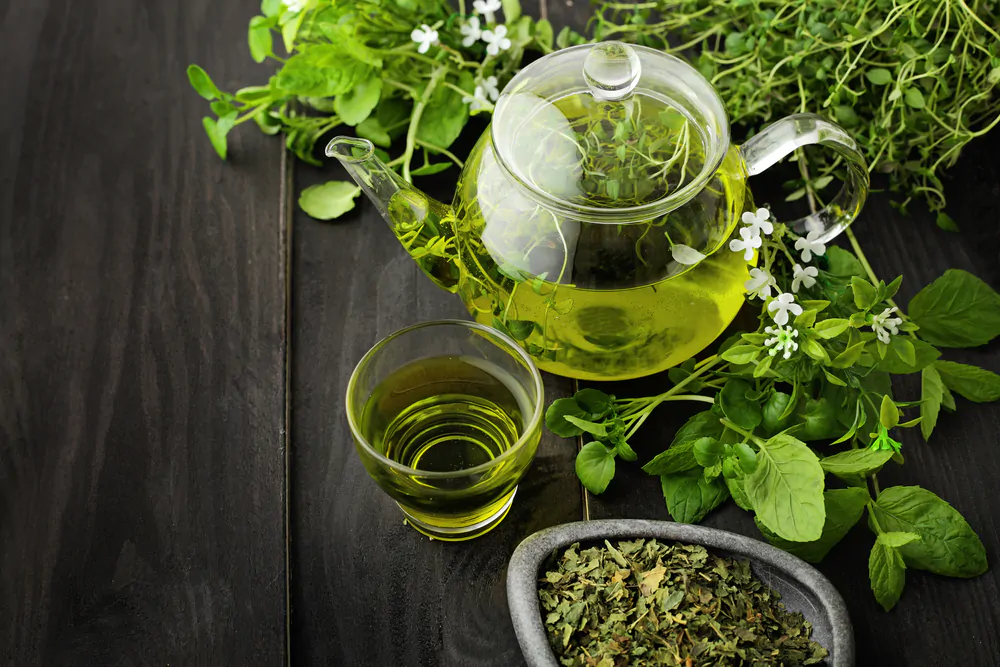
The origins of green tea being consumed by people can be traced back to China. Supposedly, the legendary Chinese Emperor Shennong accidentally consumed a boiled drink that contained dead tea leaves around 2700 BC.
While green tea was exclusively meant for higher tiers of society and wealthier folk back then, it eventually became a standard drink among the general public. In the 1900s, green tea made its way to Western societies, starting with Europe. Today, green tea is one of the most popular health drinks globally and is regularly consumed by countless people for its numerous health benefits.
Can You Grow Your Own Green Tea?
This is entirely possible, provided that the conditions you grow your green tea plant (also known as a camellia sinensis plant) are ideal. Tea plants usually thrive in warmer and more humid climates, but you can grow one in colder areas if you can regulate its temperature. You will also need to keep an eye on your soil’s acidity.
You can also help promote your green tea plant’s growth by using compost or leaves as mulch and routinely watering it. Take care of your green tea plant, and you’ll have your batch ready for brewing in no time!
Does Green Tea Have Caffeine?
The short answer is yes. Green tea contains caffeine. But while the drink can perk you up a bit, it does not contain as much caffeine as other types of tea (like oolong and black tea) or even your average cup of coffee. An 8-ounce cup of green tea usually contains around 30 to 50 milligrams of caffeine compared to black tea, which can range from 40 to 90 milligrams.

